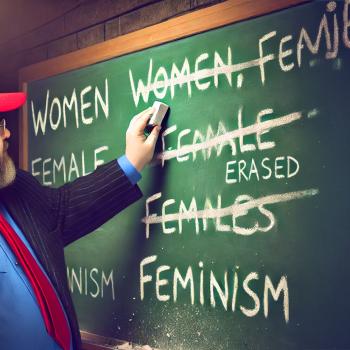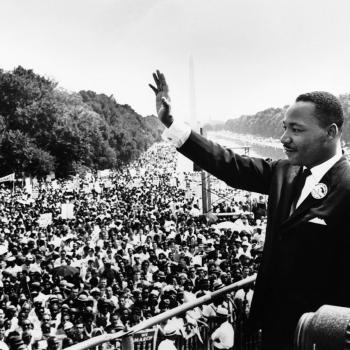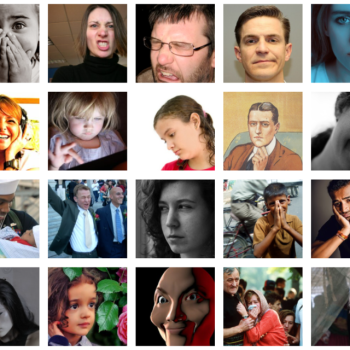Tom Krattenmaker is one of the liberals we evangelicals need to know.
In The Evangelicals You Don’t Know: Introducing the Next Generation of Christians, Krattenmaker, one of America’s leading journalists on religion, presents a fair-minded, critical assessment of evangelicalism from his liberal vantage point. Krattenmaker complexifies the situation in which we find ourselves in America today. Drawing attention to a groundswell of compassion and civic virtue within evangelical Christianity that does not fit the negative stereotypes of much of secular America, Krattenmaker powerfully argues that the battle is not between evangelicals and non-evangelicals, including secularists. As he sees it, the culture war dividing line is between religious and secular totalitarians on the one hand and those from across the religious and cultural spectrum that are coming together in support of the common good. Journalism of this caliber and scope is vitally important if we are to move beyond the partisan politics and religious fervor that so divides our society in the pursuit of a more humane America. A must read for all concerned—everybody.
The preceding statement is adapted from my endorsement for the book. Actually, it is more than an endorsement for a book. It is an endorsement for the kind of public discourse that is needed today.
I have known Krattenmaker for several years and I have always been struck by his rigorous effort and evident skill in presenting an even-handed account of evangelicalism from his liberal progressive vantage point. You will not find here the kind of scathing rhetoric displayed by H.L. Mencken at the demise and death of William Jennings Bryan. In fact, while reflecting his liberal progressive instincts and concerns, Krattenmaker also demonstrates concern over the mishandling of evangelicals by his liberal counterparts. Moreover, he does not declare the demise of evangelicalism, but an awakening. While it is not without its criticisms of the movement, this book is no obituary for evangelical Christianity.
As a movement, we evangelicals still have a long way to go on developing a robust and comprehensive public theology that is pro-life, all life—including on subjects of prison reform, gun control, women’s rights, and the environment. For his own part, Krattenmaker is quick to point out that secular progressives have a long way to go as well. Sometimes its brand of tolerance does not go far enough in refusing to tolerate injustices committed against the least fortunate, like the failure to engage fully the moral dimensions of abortion and the male dominated hyper-sexualization of girls and women in culture.
 In closing, I wish to draw attention to words from my endorsement that I believe reveal the most important feature of the book: “Krattenmaker powerfully argues that the battle is not between evangelicals and non-evangelicals, including secularists. As he sees it, the culture war dividing line is between religious and secular totalitarians on the one hand and those from across the religious and cultural spectrum that are coming together in support of the common good.” Evangelicals and non-evangelicals alike struggle with totalitarian self-righteousness, believing everything about our particular selves and constituencies is good and “the other” is all bad. We will never get anywhere as a society in affirming and cultivating the common good if we don’t seek to come together in search of shared values, acknowledging our own weaknesses and the other’s strengths, even while cherishing our own traditions. As much as possible, no matter how hard it is, we need to develop the kind of rhetorical sophistication and conflict resolution strategies that make it possible to build a common America. To that end, Krattenmaker’s book is a prophetic witness.
In closing, I wish to draw attention to words from my endorsement that I believe reveal the most important feature of the book: “Krattenmaker powerfully argues that the battle is not between evangelicals and non-evangelicals, including secularists. As he sees it, the culture war dividing line is between religious and secular totalitarians on the one hand and those from across the religious and cultural spectrum that are coming together in support of the common good.” Evangelicals and non-evangelicals alike struggle with totalitarian self-righteousness, believing everything about our particular selves and constituencies is good and “the other” is all bad. We will never get anywhere as a society in affirming and cultivating the common good if we don’t seek to come together in search of shared values, acknowledging our own weaknesses and the other’s strengths, even while cherishing our own traditions. As much as possible, no matter how hard it is, we need to develop the kind of rhetorical sophistication and conflict resolution strategies that make it possible to build a common America. To that end, Krattenmaker’s book is a prophetic witness.
This piece is cross-posted at The Institute for the Theology of Culture: New Wine, New Wineskins and The Christian Post.

















